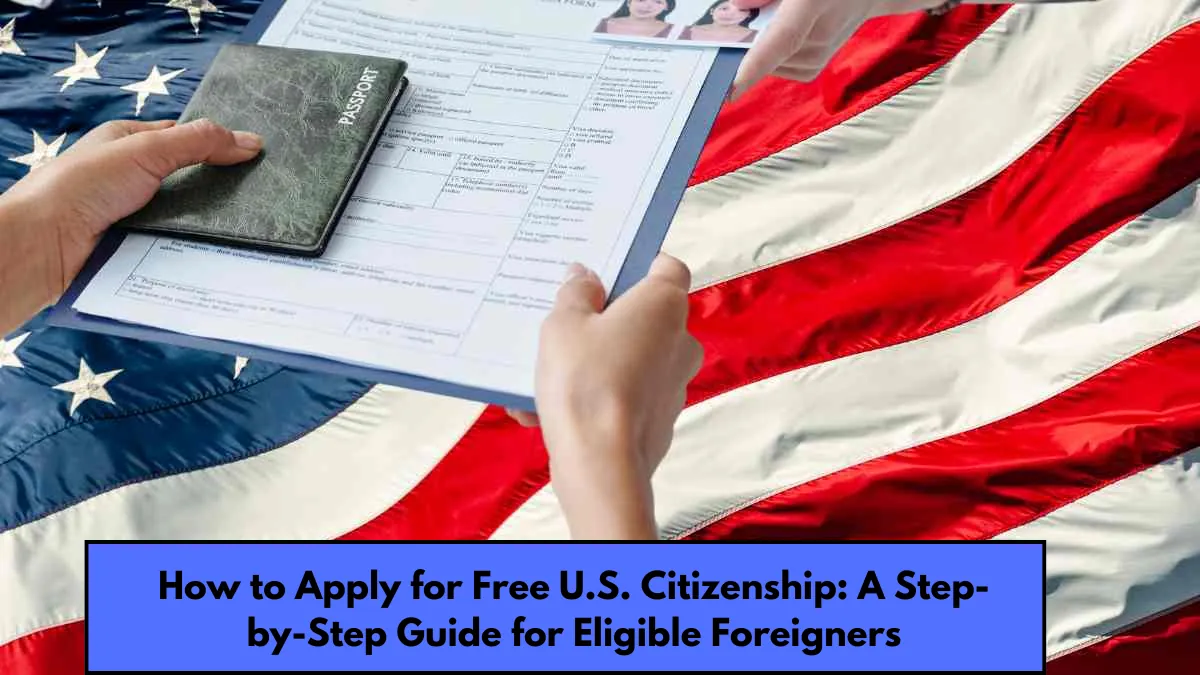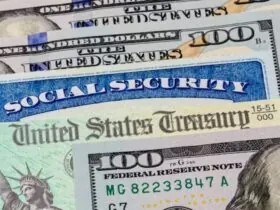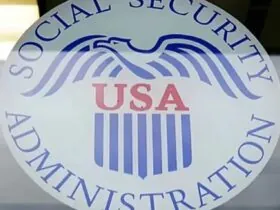Obtaining U.S. citizenship is a dream for many, but the costs associated with the application process can be overwhelming. Fortunately, certain foreigners can qualify for free citizenship through fee waivers. In this guide, we’ll explore how you can apply for U.S. citizenship at no cost, who is eligible, and the steps involved in the process.
Rising Costs of U.S. Citizenship Applications
This Article Includes [hide]
The U.S. has recently increased the fees for citizenship applications, making it more expensive for individuals seeking to become naturalized citizens. The current costs for applications are:
- Online Citizenship Application: $710 (with or without biometric services)
- Paper Application: $760 (with or without biometric services)
However, for applicants with household incomes between 150% and 400% of the Federal Poverty Guidelines (FPG), the fees are reduced to $380. While these fees may still seem high, there are opportunities to completely waive them under specific conditions.
Who is Eligible for a Citizenship Fee Waiver?
The U.S. Citizenship and Immigration Services (USCIS) allows certain applicants to apply for a fee waiver based on financial hardship and other qualifying factors. Here’s a breakdown of who may qualify:
1. Low Household Income
If your household income is below 150% of the Federal Poverty Guidelines, you may be eligible for a fee waiver. This guideline considers the size of your household and your total income, so it’s important to check the current federal poverty levels when applying.
2. Recipients of Public Benefits
Those who receive government assistance, such as Medicaid, Supplemental Nutrition Assistance Program (SNAP), Temporary Assistance for Needy Families (TANF), or Supplemental Security Income (SSI), typically qualify for a fee waiver. If you are enrolled in these programs, you should provide proof of your participation.
3. Exceptional Financial Hardships
Individuals facing significant financial challenges can also apply for a fee waiver. Examples of hardships include recent job loss, medical emergencies, or recovery from a natural disaster. In these cases, documentation such as unemployment records or medical bills will be required to support the fee waiver application.
4. Disabilities
Applicants with disabilities that prevent them from working or generating a steady income can also qualify for the waiver. Supporting documents such as medical reports detailing the disability and its impact on the ability to work will strengthen your case.
How to Apply for U.S. Citizenship for Free
Applying for a fee waiver to obtain U.S. citizenship requires careful preparation and the submission of specific forms and documents. Here’s how to get started:
Step 1: Verify Your Eligibility
Before applying, ensure that you meet at least one of the criteria for a fee waiver. Gather all necessary documentation, such as tax returns, medical reports, or letters from government agencies, to prove your eligibility.
Step 2: Complete Form I-912
Form I-912 is the key to requesting a fee waiver from USCIS. You must provide accurate and detailed information about your financial situation, including any proof of government benefits, income, or financial hardship.
Step 3: Attach Supporting Documents
When submitting Form I-912, make sure to include all required documents that support your case for a fee waiver. These may include:
- Recent tax returns
- Proof of government assistance
- Medical records (if applicable)
- Documentation of financial hardship
Ensure that all copies are clear and legible.
Step 4: Submit Your Application
Once Form I-912 is completed, you’ll need to attach it to Form N-400, which is the application for naturalization. Send both forms, along with all supporting documents, to the USCIS for review.
Required Documents for Free Citizenship Applications
The required documents for a fee waiver application can vary depending on your circumstances. However, the essential documents generally include:
- Tax Returns: To verify household income and determine if you fall below 150% of the Federal Poverty Guidelines.
- Government Letters: To show proof of public benefits (e.g., Medicaid, SNAP).
- Medical Reports: For applicants claiming disability or medical hardship.
Having all the necessary documents ready when you apply will make the process smoother and increase the likelihood of your application being approved.
Final Thoughts: Take Advantage of Fee Waivers
Becoming a U.S. citizen is a significant milestone, but it shouldn’t be hindered by financial barriers. If you qualify for a fee waiver, you can save money and ease the burden of the naturalization process. By following the steps outlined in this guide and ensuring you have all the required documentation, you can move forward with your application and achieve your goal of becoming a U.S. citizen at no cost.







Leave a Reply